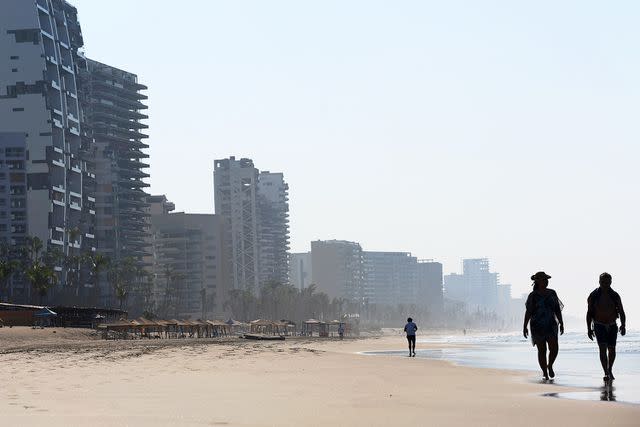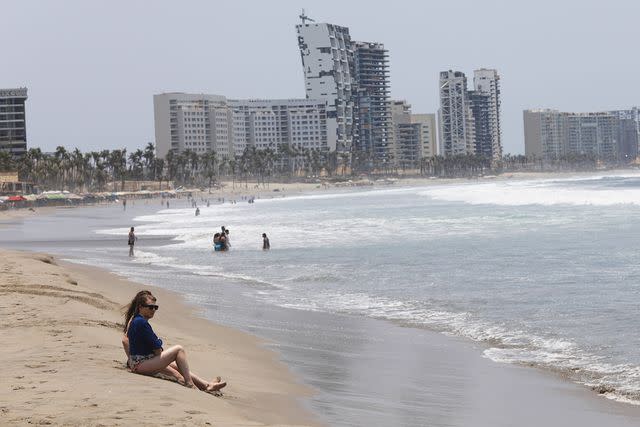Bodies of 4 Men, 2 Women Found Strangled, Piled Up in Mexican Resort City
The victims were found with their hands tied behind their backs and dumped into a pile on Monday night

Matthew Stockman/Getty
Acapulco beach in MexicoSix people have been found dead in Acapulco, Mexico.
Authorities revealed that four men and two women had been strangled in the popular resort city in the state of Guerrero, according to the Associated Press.
The victims were found with their hands tied behind their backs and dumped into a pile on Monday night. The outlet reports the investigation remains underway.

Matthew Stockman/Getty
Tourism at Acapulco beach in MexicoThe identities of the victims have not yet been released.
These slayings come just one week after five bodies were dismembered and scattered on the tourist-filled streets of Acapulco. Per Fox News, one was a candidate for nearby Coyuca de Benítez’s town council.
A month prior, Acapulco’s head of traffic police, Eduardo Chávez, was shot to death.
Earlier, in February, two people were found dead on a local beach. According to AP, the men had been strangled, which the Coast Guard described as “torture by ligature” with “signs of torture around the neck.”
The outlet also reported that a common way for Mexican drug gangs to kill is by asphyxiation.

Ian Robles/Eyepix Group/LightRocket/Getty
Tourists in Acapulco, MexicoNever miss a story — sign up for PEOPLE's free daily newsletter to stay up-to-date on the best of what PEOPLE has to offer, from celebrity news to compelling human interest stories.
The city has been plagued by death in recent months. In October, Category 5 Hurricane Otis killed 52 people and ripped through most of the town’s infrastructure.
At the time, research scientist at Colorado State University Phil Klotzbach told CNN that Otis was the fastest intensifying hurricane in a 12-hour period in Eastern Pacific history.
For more People news, make sure to sign up for our newsletter!
Read the original article on People.

